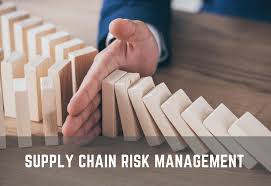Supply Chain “Audits” and Risk Mitigation

We have seen an explosion in the attention paid to legal, compliance and operational risks companies face in supply chain operations. Depending on the industry, companies have to address a wide-swath of supply chain risks, identify those issues that need to be mitigated and promote transparency and management of supply chain functions.
Legal and compliance risks have increased with heightened focus on due diligence, export controls and sanctions, modern slavery, human trafficking, environmental, health and safety issues, along with reputational risks that may threaten a company’s culture and market presence. International regulation has expanded through European Directives, the German Due Diligence Act, a Canadian Forced Labor Act, and the United States Forced Labor Prevention Act. These efforts are likely to increase as stakeholders demand human rights, sustainability and corporate responsibility initiatives with an overriding commitment to ethics and integrity.
Whatever specific requirement is identified, companies have been attending to supply chain operations as a basic business function to ensure continuity in response to disasters, climate events, and other factors outside the control of corporate actors. Companies committed to a culture of ethics and compliance can leverage this perspective to enhance overall efficiency, sustainability planning and transparency of operational details. This is a natural area for a partnership between ethics and compliance with the business function, such as procurement and supply chain operations.

With this collaboration in mind, ethics and compliance can earn a seat at the table with business representatives to peel back the layers of a company’s supply chain. Ethics andd compliance professionals can offer important information relating to due diligence, market intelligence and advice concerning existing vendors/suppliers, prospective candidates, and attendant risks and mitigation steps. In providing this information, compliance professionals can support business activities in the planning and assessment phase. As alternatives are considered, compliance professionals can become a “value-add” to the business realities.
Working together, such collaboration will enhance the company’s legal and compliance efforts. Supply chain visibility is a required function for ensuring compliance with forced labor, export control and sanctions regulations. Such audits and information is critical to identify and mitigate these risks.
The importance of conducting supply chain audits has been cited by OFAC’s Compliance Guidance and in various enforcement actions, including e.l.f. Cosmetics. Companies that ignore this requirement do so at their peril, especially given the upcoming aggressive corporate enforcement program targeting companies for export control and sanctions violations.

To avoid a disastrous result, companies have to prioritize supply chain audits by building business partnerships and piggy-backing off of internal business management of its up-ply chain. A partnership with the responsible supply chain managers is an important relationship to foster and promote. In doing so, ethics and compliance professionals can prove the old adage attributed to Aristotle — the whole is greater than the sum of its parts.
This often cited quote has wide applicability in the compliance arena. An effective compliance program depends on effective partnerships and key business functions. This applies with force to management of supply chain risk — operational and legal/compliance risks.















